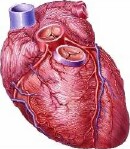- Could Your Grocery Store Meat Be Causing Recurring UTIs?
- Are You Making This Expensive Thermostat Error This Winter?
- Recognizing the Signs of Hypothyroidism
- 10 Strategies to Overcome Insomnia
- Could Artificial Sweeteners Be Aging the Brain Faster?
- Techniques for Soothing Your Nervous System
- Does the Water in Your House Smell Funny? Here’s Why
- Can a Daily Dose of Apple Cider Vinegar Actually Aid Weight Loss?
- 6 Health Beverages That Can Actually Spike Your Blood Sugar
- Treatment Options for Social Anxiety Disorder
Brief Interruption of Blood Supply to Limb Might Aid Heart Surgery: Study


Interrupting blood supply to an arm or a leg before heart surgery may help reduce the risks associated with the surgery, according to a new study.
“During heart surgery we have to stop the blood supply to the heart to be able to operate on it. After some time without fresh blood, the heart will reduce its ability to produce energy because it doesn’t get oxygen. When we shut off the blood flow to another large muscle, such as an arm or a leg, the body prepares for an upcoming challenge by mobilizing its defense system,” said the study’s first author, Dr. Katrine Hordnes Slagsvold, a doctoral candidate from the K.G. Jebsen Center for Exercise in Medicine Cardiac Exercise Research Group at the Norwegian University of Science and Technology in Trondheim, Norway, in a university news release.
The technique used in the study is called remote ischemic preconditioning (RIPC).
For the study, the researchers examined how RIPC affected the left chamber of the heart before surgery. Specifically, they examined the heart tissue of 60 patients who underwent coronary bypass surgery. The patients were selected at random to either undergo RIPC or not have this procedure performed before surgery, according to the study.
The patients treated with RIPC wore an inflatable blood pressure cuff that interrupted blood supply to their arm three different times prior to surgery. Each interval lasted for five minutes, according to the researchers.
“The heart muscle of the patients who had restricted blood flow to their arm before surgery was able to maintain the same level of energy production during the whole operation, while heart muscle from the other patients’ hearts was not. This may be important because heart tissue is dependent on energy to survive, as well as to repair injuries the cells may have endured during surgery,” Slagsvold explained.
RIPC activated a protein called Akt, the study revealed. The researchers suggested this may be a key factor in how the pre-surgery technique helps protect the heart.
The researchers report their findings in the Oct. 24 International Journal of Cardiology.
More information
The U.S. National Heart, Lung and Blood Institute provides more information on the risks associated with heart surgery.
Source: HealthDay
Copyright © 2026 HealthDay. All rights reserved.










